Immune Diet

Is it true that certain superfoods can boost your immune system ?
Incorporating superfoods like citrus fruits, garlic, ginger, spinach, yogurt, nuts and seeds, blueberries, and turmeric into your diet can help support immune health by providing key nutrients such as vitamin C, vitamin D, zinc, protein, and antioxidants. These foods offer a range of benefits including boosting white blood cell production, reducing inflammation, supporting digestive health, and protecting against oxidative stress. However, it's important to maintain a balanced diet and lifestyle for overall immune support.

How can I improve my diet to boost my immune system ?
Improving your diet is one of the best ways to boost your immune system. Here are some tips on how you can do that: ## Eat a Variety of Foods Eating a variety of foods ensures that you get all the essential nutrients your body needs. This includes fruits, vegetables, whole grains, lean proteins, and healthy fats. Aim for at least five servings of fruits and vegetables per day. ### Fruits and Vegetables - Apples - Bananas - Berries - Broccoli - Carrots - Spinach ### Whole Grains - Oats - Quinoa - Brown Rice ### Lean Proteins - Chicken breast - Fish (such as salmon or tuna) - Legumes (such as lentils or chickpeas) ### Healthy Fats - Avocados - Nuts (such as almonds or walnuts) - Seeds (such as chia or flaxseed) ## Stay Hydrated Drinking enough water is crucial for maintaining a healthy immune system. Aim for at least eight glasses of water per day, and more if you're active or it's hot outside. You can also stay hydrated by drinking herbal teas or eating water-rich foods like cucumbers, melons, and strawberries. ## Limit Processed Foods and Sugary Drinks Processed foods and sugary drinks can weaken your immune system by causing inflammation in your body. Try to limit these foods and drinks as much as possible, and opt for whole, nutrient-dense foods instead. ## Consider Taking Supplements If you're not getting enough vitamins and minerals from your diet, consider taking supplements. Some common supplements that may help boost your immune system include vitamin C, vitamin D, zinc, and probiotics. However, be sure to talk to your doctor before starting any new supplements.
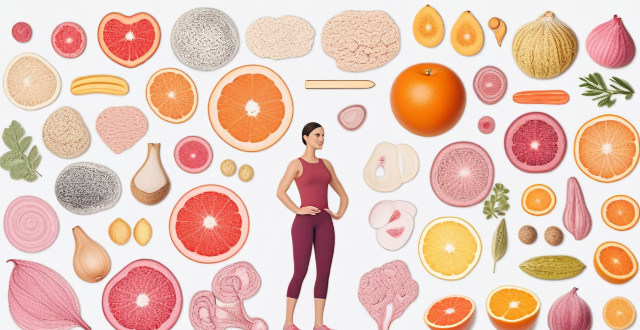
Can excessive training have negative effects on the immune system ?
Excessive training, or overtraining, can have negative effects on the immune system. Regular exercise enhances immune function by stimulating antibody and white blood cell production, reducing inflammation, and improving circulation. However, excessive training can cause chronic inflammation, oxidative stress, and hormonal imbalances that suppress immune function. Signs of overtraining syndrome include chronic fatigue, mood changes, and increased susceptibility to illness. To prevent overtraining and maintain immune health, individuals should follow a balanced training program, prioritize sleep, eat a nutrient-rich diet, and manage stress levels.

Is there a specific duration or intensity of exercise needed to improve immune function ?
The relationship between exercise and immune function is complex, but research suggests that regular physical activity can enhance the immune system. However, both the duration and intensity of exercise play significant roles in achieving this beneficial effect. The American Heart Association recommends at least 150 minutes of moderate-intensity aerobic activity or 75 minutes of vigorous-intensity activity per week for adults. Engaging in prolonged periods of endurance exercise can temporarily suppress immune function due to increased stress on the body. Light activities like walking or yoga can still offer immune benefits by reducing stress and promoting overall health. Regular moderate to high-intensity exercises, such as jogging, cycling, or strength training, are generally considered optimal for enhancing immune function. Adequate rest and recovery are crucial for maintaining a healthy immune system. Combining different types of exercises (aerobic, strength training, flexibility work) can provide a well-rounded approach to enhancing immune function. Staying hydrated and consuming a balanced diet rich in nutrients supports both exercise performance and immune health. Other lifestyle habits, including sleep quality, stress management, and avoidance of harmful substances, also play a vital role in supporting immune function alongside exercise.
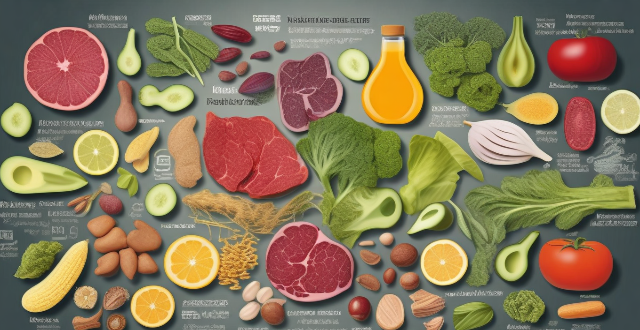
How does diet affect personal health ?
The article discusses the importance of a healthy diet in maintaining good health. It explains what constitutes a healthy diet and its benefits, such as reducing the risk of chronic diseases, improving mental health, managing weight, strengthening the immune system, and improving sleep quality. The article also provides tips for maintaining a healthy diet, including eating a variety of foods, limiting processed foods, watching portion sizes, being mindful of eating habits, getting enough sleep, and staying active.

Can exercise boost the immune system ?
Exercise can indeed boost the immune system through various mechanisms, including enhanced circulation, reduced inflammation, weight management, stress reduction, improved sleep, increased self-esteem and mental health, microbiome diversity, temperature regulation, prevention of chronic diseases, and social interaction. Regular moderate exercise is generally considered beneficial for the immune system, but it's essential to consult with healthcare professionals to determine the appropriate amount and intensity of exercise for individual needs and circumstances.
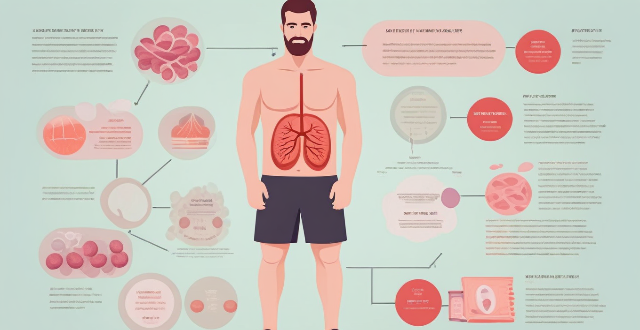
How does regular exercise contribute to boosting the immune system ?
Regular exercise has numerous health benefits, including boosting the immune system. It promotes increased blood circulation, reduces inflammation, helps in weight management, reduces stress, improves sleep quality, enhances gut health, increases antioxidant capacity, supports cardiovascular health, enhances mental health, and contributes to increased longevity. Incorporating regular physical activity into your lifestyle can support a strong and resilient immune system.

How does consistent physical activity affect the immune system in relation to chronic disease prevention ?
The article discusses the impact of consistent physical activity on the immune system and its role in preventing chronic diseases. It explains that regular exercise can increase the number and activity of immune cells, reduce inflammation, and improve overall health. The article also provides recommendations for exercise and emphasizes the importance of incorporating physical activity into one's lifestyle to prevent chronic diseases and improve well-being.

Can sports supplements replace a healthy diet ?
Sports supplements can enhance performance and provide targeted nutrients, but cannot replace a healthy diet. Whole foods offer complete nutrition necessary for overall health. Supplements may cause side effects and are expensive. Prioritize a well-balanced diet and use supplements judiciously to support specific goals.

Can taking sports nutrition supplements compensate for a poor diet and lack of exercise ?
Sports nutrition supplements cannot fully compensate for a poor diet and lack of exercise. While these supplements can provide certain nutrients essential for athletic performance, they cannot replace the overall benefits of a healthy lifestyle. A balanced diet and regular exercise are crucial for maintaining good health and supporting athletic performance. Supplements should be used cautiously and with guidance from a healthcare professional to ensure they complement your overall lifestyle rather than replace it.
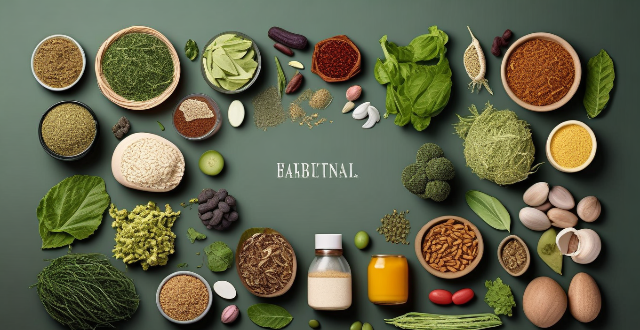
What role does protein play in a healthy diet ?
Protein is an essential nutrient that plays a crucial role in maintaining a healthy diet. It contributes to tissue growth and repair, enzyme and hormone production, immune system function, fluid balance, and energy provision. Consuming a variety of protein sources is important to ensure all necessary amino acids are obtained.
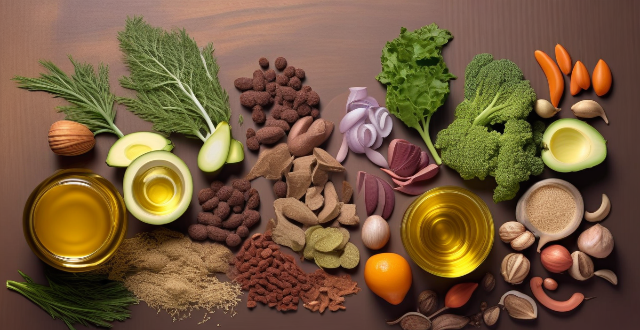
How does a balanced diet contribute to overall well-being ?
A balanced diet is essential for maintaining overall well-being, as it provides the body with the necessary nutrients, vitamins, and minerals required for optimal health and functioning. By consuming a variety of foods in appropriate portions, you can maintain a healthy weight, boost your immune system, support cardiovascular health, enhance brain function and mental health, promote digestive health, and support bone health. Some key nutrients that support these functions include lean protein sources, whole grains, fruits and vegetables rich in vitamins, minerals, and fiber, healthy fats found in nuts, seeds, avocados, and olive oil, omega-3 fatty acids, B vitamins, antioxidants, probiotics, calcium, and vitamin D.
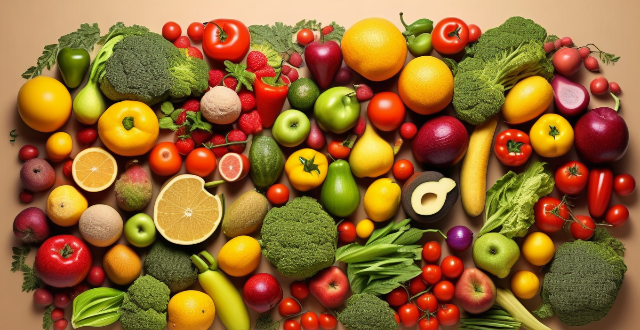
What are the benefits of including more fruits and vegetables in your diet ?
Including more fruits and vegetables in the diet can lead to improved nutritional value, better weight management, reduced risk of chronic diseases, a boosted immune system, and enhanced mental health. These foods are rich in vitamins, minerals, fiber, and antioxidants, which support overall health and well-being.

What kind of diet do celebrities follow ?
Celebrities maintain their physique and appearance through various diets, each with its benefits. Clean eating focuses on whole foods, boosting energy and digestion while aiding weight loss. The vegan diet eliminates animal products, reducing the risk of chronic diseases and improving skin health. The keto diet promotes rapid weight loss, increased energy levels, and reduced inflammation. While these diets work for some celebrities, individual needs vary, and it's essential to consult a healthcare professional before making significant changes to one's diet or lifestyle.

What is a good marathon diet plan ?
A good marathon diet plan should provide the necessary nutrients and energy to support an athlete's training and performance during a marathon. It should include a high-carbohydrate diet, protein needs, and healthy fats. A high-carbohydrate diet should provide around 60-70% of total daily calories from carbohydrates, while protein needs should provide around 10-20% of total daily calories. Healthy fats should make up around 20-35% of total daily calories. Good sources of carbohydrates include whole grains, fruits, vegetables, legumes, and low-fat dairy products. Good sources of protein include lean meats, poultry, fish, eggs, nuts, seeds, and plant-based proteins like tofu and tempeh. Good sources of healthy fats include olive oil, avocados, nuts, seeds, fatty fish (such as salmon), and dark chocolate.

How long after starting a new exercise routine can improvements in immunity be expected ?
Regular exercise has numerous health benefits, including improved cardiovascular health, weight management, and mental well-being. One of the lesser-known benefits is its positive impact on the immune system. Improvements in immunity can be observed within a few weeks of starting a regular exercise program, depending on individual factors such as current fitness level, intensity and duration of exercise sessions, and overall lifestyle habits. By incorporating regular physical activity into your daily routine, you can enhance your immune function and enjoy the numerous other health benefits associated with exercise.

What types of physical activities are most effective in enhancing immunity ?
Regular physical activity is crucial for enhancing immunity, with various types of exercises offering specific benefits. Aerobic exercises like jogging, cycling, and swimming improve cardiovascular health, respiratory function, and overall fitness, while also reducing stress and inflammation. Resistance training, including weightlifting and yoga, builds muscle mass, promotes hormone balance, and supports gut health. High-Intensity Interval Training (HIIT) boosts metabolism and cardiovascular health. Incorporating a mix of these activities into your routine can significantly enhance immunity.

How do I ensure I'm getting enough nutrients on a vegetarian diet ?
This topic discusses the essential nutrients to watch on a vegetarian diet and provides tips for meal planning. It highlights key nutrients such as protein, iron, vitamin B12, calcium, vitamin D, and omega-3 fatty acids and suggests food sources for each. The text also emphasizes the importance of diversifying intake, considering supplementation, having regular check-ups, and working with a professional to create a balanced meal plan. Overall, it offers guidance on ensuring adequate nutrient intake while following a vegetarian diet.

How can a healthy diet improve women's reproductive health ?
A healthy diet is crucial for women's reproductive health, affecting fertility, pregnancy, and menstrual health. Essential nutrients like folic acid and iron support conception and hormone regulation. Calcium, vitamin D, and magnesium can reduce PMS symptoms, while iron-rich and antioxidant-rich foods improve period health. During pregnancy, nutrients like folic acid and iodine are crucial for fetal development, and fiber and hydration maintain maternal health. A balanced diet can also prevent gynecological issues like fibroids and ovarian cysts. Additionally, weight management and mental health through a healthy diet promote overall well-being. Consulting healthcare professionals for personalized dietary advice is recommended.

Can diet and exercise affect memory according to scientific studies ?
Diet and exercise can positively impact memory, asDiet and exercise can positively impact memory, as a healthy lifestyle that promote cognitive while regular physical activity increases blood flow to the brain, reduces inflammation, and promotes the growth of new neurons. Conversely, a poor diet lacking in essential nutrients and lack of exercise can have negative effects on memory over time. Therefore, adopting a healthy lifestyle that includes a balanced diet and regular exercise is essential for maintaining good memory and overall brain health.
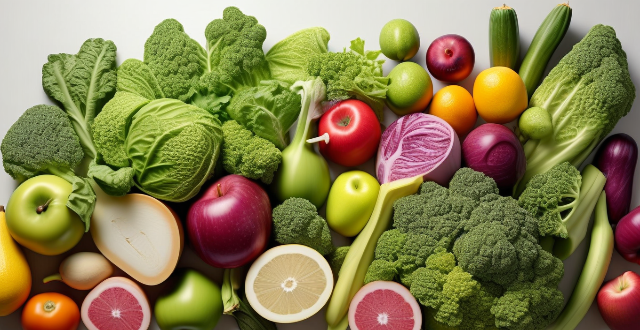
How can I improve my athletic performance through diet
Improving athletic performance through diet involves eating a balanced diet, increasing protein intake, consuming plenty of fruits and vegetables, drinking enough water, avoiding processed foods, eating before training or competition, and considering supplements. A balanced diet includes carbohydrates, proteins, and healthy fats in the right proportions. Protein is essential for building muscle and repairing damaged tissues, while fruits and vegetables are rich in vitamins, minerals, and fiber. Drinking enough water is crucial for staying hydrated during exercise. Avoiding processed foods can prevent harm to your performance and health. Eating before training or competition can provide energy and prevent fatigue. Supplements such as whey protein powder, amino acids, and BCAAs can improve performance but should be taken under the guidance of a nutritionist or doctor.

How can I ensure that I'm getting enough protein in my diet ?
Protein is crucial for muscle growth, hormone regulation, and immune support. To ensure you get enough, calculate your needs, choose quality sources like lean meats and legumes, include protein in every meal, snack smartly, read nutrition labels, and consider supplements if needed. Variety and quality are key.

What kind of diet do celebrities follow for a healthy lifestyle ?
Celebrities often follow specific diets to maintain their health and appearance, including the Mediterranean, Vegan, Paleo, Keto, Intermittent Fasting, Juicing, Plant-Based, Clean Eating, DASH, and Mindful Eating diets. These diets offer various benefits such as weight loss, improved heart health, better digestion, and enhanced mental clarity. Celebrities like Jennifer Aniston, Beyoncé, Matthew McConaughey, Halle Berry, Hugh Jackman, Salma Hayek, Ellie Goulding, Gwyneth Paltrow, Queen Latifah, Adele, and Jennifer Lawrence have incorporated these diets into their lifestyles.
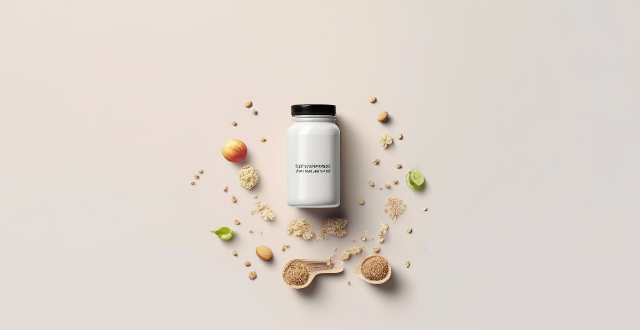
Are there any potential side effects of switching to a gluten-free diet ?
Switching to a gluten-free diet can have several potential side effects, including nutrient deficiencies, digestive issues, weight gain, headaches and fatigue, and higher cost. It is important to be aware of these potential side effects and take steps to ensure adequate nutrition on a gluten-free diet. Consultation with a healthcare professional is recommended before making any significant changes to your diet.
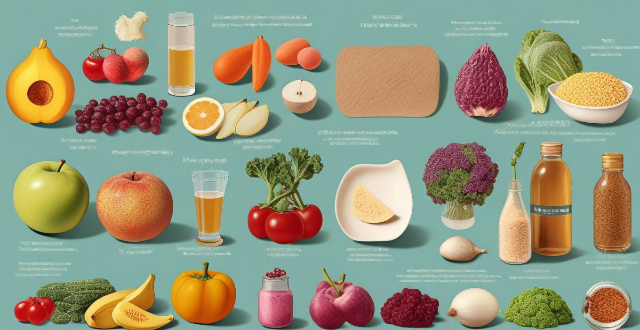
What are the potential risks associated with a high-fat diet ?
A high-fat diet, particularly one rich in saturated and trans fats, can pose several health risks. These include an increased risk of cardiovascular disease, obesity and weight gain, type 2 diabetes, liver disease, cancer, and digestive issues. It is essential to maintain a balanced diet that includes healthy fats while limiting the intake of saturated and trans fats found in processed foods and fried foods.

Which diet plans do celebrities follow to keep themselves fit and healthy ?
Celebrities are often seen as epitomes of fitness and health, inspiring millions to follow their lifestyle choices. One of the most significant aspects of their routine is their diet plan. Let's take a closer look at some popular diet plans followed by celebrities to maintain their physique and overall well-being: 1. Intermittent Fasting 2. Plant-Based Diet 3. Ketogenic Diet 4. Mediterranean Diet 5. Juicing Diet

How can women ensure they are getting enough calcium in their diet ?
Calcium is crucial for women's health, especially for maintaining strong bones and teeth. Women can ensure they are getting enough calcium by knowing their requirements, including calcium-rich foods in their diet, considering supplements if needed, and maintaining a healthy lifestyle with regular exercise and limited alcohol consumption. It's important to consult with a healthcare professional for personalized advice.

Can following a vegetarian or vegan diet be considered healthy ?
A vegetarian or vegan diet can indeed be considered healthy, but it depends on how well-planned and balanced the diet is. Here's a detailed analysis: ## **Nutritional Requirements** ### *Protein* Vegetarians can get protein from sources like beans, lentils, tofu, tempeh, and dairy products. Vegans need to rely on plant-based proteins such as legumes, grains, nuts, and seeds. ### *Iron* Plant-based sources of iron include leafy greens, beans, and fortified cereals. However, the absorption rate of non-heme iron (from plants) is lower than heme iron (from animals). Consuming vitamin C-rich foods can enhance iron absorption. ### *Calcium* Vegetarians can get calcium from dairy products. Vegans need to find sources like fortified plant milks, tofu, and certain greens. ### *Vitamin B12* This nutrient is only found naturally in animal products. Vegetarians who consume dairy or eggs don't usually have a deficiency, but vegans must rely on fortified foods or supplements. ### *Omega-3 Fatty Acids* Flaxseeds, chia seeds, hemp seeds, and algae-based supplements are good sources for vegans. Vegetarians can also get it from fish. ## **Potential Health Benefits** - **Lower Risk of Chronic Diseases**: Studies show that vegetarian and vegan diets can reduce the risk of heart disease, high blood pressure, type 2 diabetes, and obesity. - **Healthier Weight**: Plant-based diets tend to be lower in calories and higher in fiber, leading to better weight management. - **Rich in Antioxidants**: Fruits, vegetables, whole grains, and legumes are rich in antioxidants, which help fight inflammation and cellular damage. ## **Challenges and Considerations** - **Nutrient Deficiencies**: Without proper planning, vegetarians and especially vegans may face deficiencies in certain nutrients like vitamin B12, iron, calcium, and omega-3 fatty acids. - **Limited Food Choices**: Avoiding entire food groups can make meal planning more challenging and limit variety. - **Social and Cultural Factors**: Eating out or attending social events where vegetarian or vegan options are not readily available can be difficult. ## **Conclusion** Adopting a vegetarian or vegan diet can be very healthy if it is well-planned and balanced to meet all nutritional needs. It's essential to ensure adequate intake of key nutrients that might be lacking in plant-based diets. Consulting with a registered dietitian can help individuals navigate these challenges and create a sustainable, healthy eating plan.

Is it necessary to follow a high-protein diet for strength training
A high-protein diet can be beneficial for strength training, but it is not absolutely necessary as long as enough protein is consumed to support muscle growth and repair. Reasons for a high-protein diet include muscle repair and growth, increased metabolism, satiety, and improved recovery. However, the amount of protein needed varies based on individual factors, and general guidelines for intake during strength training are 0.8-1.2 grams per kilogram of body weight, with a source of protein consumed within 30-60 minutes after a workout. High-quality sources of protein should also be chosen.